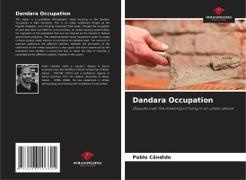Read more
This paper is a qualitative ethnographic study focusing on the Dandara Occupation in Belo Horizonte. This is an urban settlement forged by the Popular Brigades, a pro-housing movement that seeks, through the occupation of land that does not fulfill its social function, to create housing opportunities for segments of the population that are not covered by the market or federal government programs. The aforementioned social movement seeks to create in these spaces urban devices of resistance to capitalist logic. The research in question addresses the different interests between the promoters of the settlement of the needy population in that space and those expressed by the population that inhabits it around the way in which the idea of housing is conceived by the different subjects involved in this action.
About the author
Pablo Cândido hat einen Master-Abschluss in Sozialwissenschaften von der Päpstlichen Katholischen Universität von Minas Gerais - PUC-MG (2017) und einen Abschluss in Sozialwissenschaften von der Bundesuniversität von Minas Gerais - UFMG (2009). Er hat Erfahrung in Stadtanthropologie und der Arbeit mit traditionellen Gemeinschaften.

